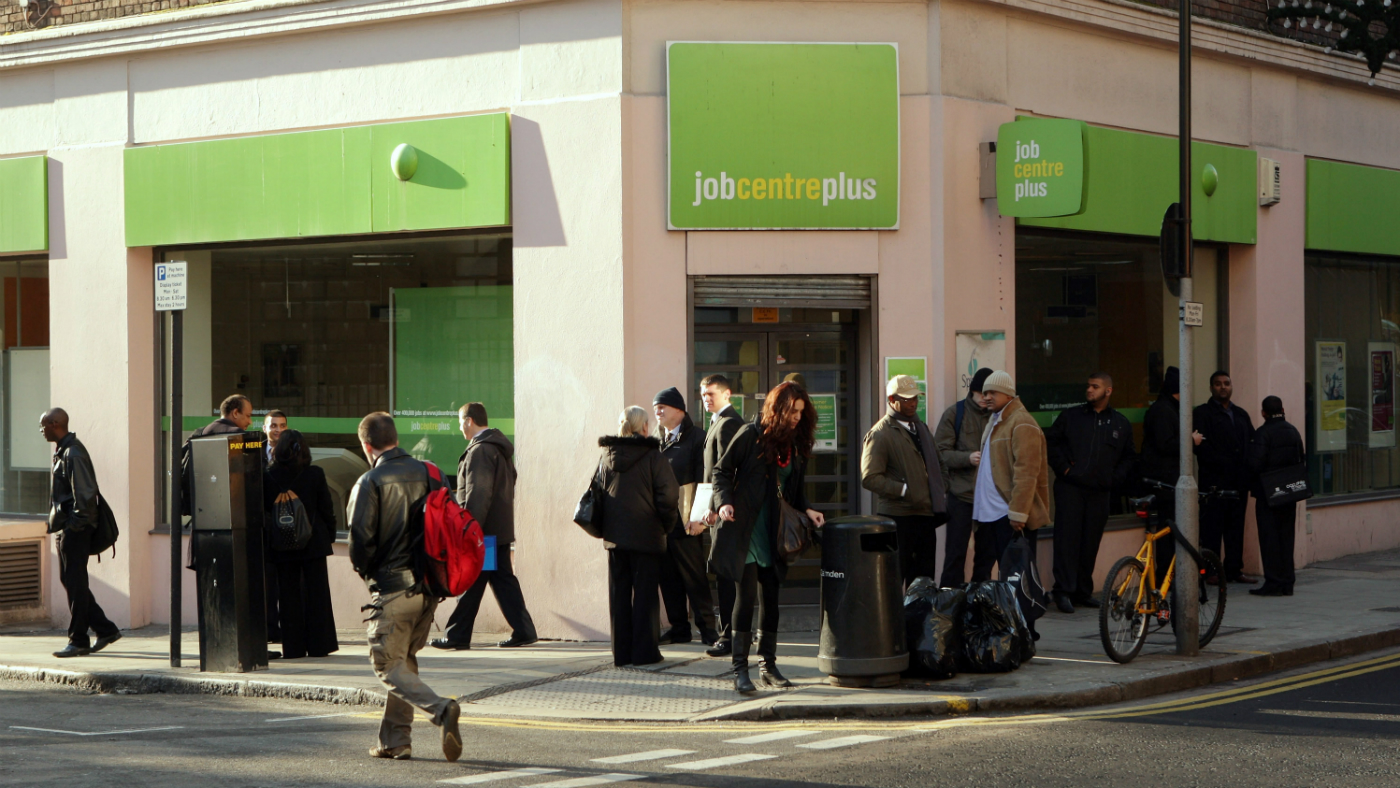Everything you need to know about the Budget welfare reforms
The spring Budget included a major overhaul of disability benefits

A free daily email with the biggest news stories of the day – and the best features from TheWeek.com
You are now subscribed
Your newsletter sign-up was successful
Chancellor Jeremy Hunt used his spring Budget this week to introduce what he calls “the biggest change to the welfare system in the past 10 years”.
A key pillar of the government’s plan is to remove the controversial work capability assessment (WCA), therefore separating benefit entitlement from an individual’s ability to work. The aim is to help disabled people get back into the workforce without losing benefits. “Disabled benefit claimants will always be able to seek work without fear of losing financial support,” Hunt said, according to Reuters.
Here is how the reforms could help and hinder disabled people.
The Week
Escape your echo chamber. Get the facts behind the news, plus analysis from multiple perspectives.

Sign up for The Week's Free Newsletters
From our morning news briefing to a weekly Good News Newsletter, get the best of The Week delivered directly to your inbox.
From our morning news briefing to a weekly Good News Newsletter, get the best of The Week delivered directly to your inbox.
What is the work capability assessment?
A disabled person currently has to “jump through hoops to get health benefits”, said The Sun.
The “burdensome” WCA, including questionnaires and medical assessments, is used to decide if a disabled person is fit to work when they make or renew a claim for employment support allowance and Universal Credit.
Critics of the system say WCAs are “humiliating for disabled people and discourage them from working”. the BBC said.
The government’s white paper on the changes said removing the assessment “will ensure that those who are able to can progress in or towards work, without the worry of being reassessed and losing their benefit”.
A free daily email with the biggest news stories of the day – and the best features from TheWeek.com
How will the new system work?
As things stand now, disabled people claiming benefits are categorised in limited capability for work (LCW) and Universal Credit limited capability for work or work related activity (LCWRA) groups.
If you are placed in the LCW workgroup, explained the Daily Mirror, the Department for Work and Pensions (DWP) believes you are able, with support, to work at some point in the future.
Those in the LCWRA group don’t have to work or do anything to get ready for work as the DWP doesn’t think they can work, said the newspaper. They usually receive an extra £354.28 each month on top of existing benefits.
A new Universal Credit “health element” will replace both these categories and the payment will remain the same under the new system. The only assessment will be for the personal independence payment (PIP), the main disability benefit.
The government will also introduce a new “universal support” employment programme for disabled people and those with long-term health conditions in England and Wales. It aims to match 50,000 participants per year with open market jobs, funding support and training.
Hunt said: “The government will spend up to £4,000 per person to help them find appropriate jobs and put in place the support they need.”
There are also threats of further sanctions for benefit claimants deemed not to be looking for work. The chancellor said there would be additional training for job centre work coaches to ensure they are applying sanctions effectively.
The changes will require new laws to be passed in Parliament and the reforms are not expected to begin until 2026 at the earliest, the government said.
What has been the reaction?
Campaigners “welcomed” the changes, reported the i newspaper, but they remained worried that people already out of work because of disability will remain so. They warned there have been “many mistakes” on welfare reform in the past.
One concern is that someone who does not have a long-term disability would not necessarily qualify for PIP – “meaning that despite being too ill to work they could lose out”, warned the Resolution Foundation think tank, according to The Independent.
The think tank said it was right to implement the changes slowly, “given that there will be significant winners but also losers”.
“There are very concerning aspects” in the new plans, Rachelle Earwaker, senior economist at the Joseph Rowntree Foundation, told The Big Issue. “Addressing these issues must not go hand-in-hand with an increase in sanctions, which we know are counter-productive, harmful to people’s finances and health, and drive people into destitution.”
Campaigners have also expressed fears that doubling down on sanctions could mean disabled people and carers are “forced into inappropriate work-related activity or face the threat of losing their financial support”, the i newspaper said.
Sign up to The Week's personal finance newsletter to get expert advice and tips sent to your inbox every Thursday.
Marc Shoffman is an award-winning freelance journalist, specialising in business, property and personal finance. He has a master’s degree in financial journalism from City University and has previously written for FT Adviser, This Is Money, the Mail on Sunday and MoneyWeek.
Marc Shoffman is an NCTJ-qualified award-winning freelance journalist, specialising in business, property and personal finance. He has a BA in multimedia journalism from Bournemouth University and a master’s in financial journalism from City University, London. His career began at FT Business trade publication Financial Adviser, during the 2008 banking crash. In 2013, he moved to MailOnline’s personal finance section This is Money, where he covered topics ranging from mortgages and pensions to investments and even a bit of Bitcoin. Since going freelance in 2016, his work has appeared in MoneyWeek, The Times, The Mail on Sunday and on the i news site.
-
 Why is the Trump administration talking about ‘Western civilization’?
Why is the Trump administration talking about ‘Western civilization’?Talking Points Rubio says Europe, US bonded by religion and ancestry
-
 Quentin Deranque: a student’s death energizes the French far right
Quentin Deranque: a student’s death energizes the French far rightIN THE SPOTLIGHT Reactions to the violent killing of an ultraconservative activist offer a glimpse at the culture wars roiling France ahead of next year’s elections
-
 Secured vs. unsecured loans: how do they differ and which is better?
Secured vs. unsecured loans: how do they differ and which is better?the explainer They are distinguished by the level of risk and the inclusion of collateral
-
 ABLE accounts: how they work and who can benefit from them
ABLE accounts: how they work and who can benefit from themthe explainer These state-administered accounts are available to people with disabilities
-
 Universal Credit cut: a guide to financial aid alternatives
Universal Credit cut: a guide to financial aid alternativesIn Depth Boris Johnson defends £20-a-week cut by arguing that taxpayers should not ‘subsidise’ low pay
-
 The great universal credit swindle
The great universal credit swindleSpeed Read Multimillion-pound benefit scam is exposed as fraudsters target flagship scheme
-
 Esther McVey ‘misled’ MPs over universal credit
Esther McVey ‘misled’ MPs over universal creditSpeed Read Work and Pensions secretary makes partial apology but also disputes some of the watchdog’s findings
-
 Universal credit ‘may never deliver value for money’
Universal credit ‘may never deliver value for money’In Depth Damning independent audit of welfare reform finds it is running behind schedule and not delivering on aims